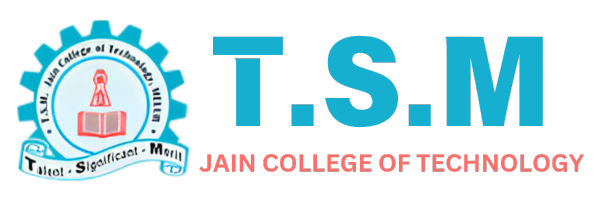National Service Scheme(NSS)
The National Service Scheme at T.S.M. Jain College of Technology is an active student-led program dedicated to community service and holistic personal development. Established with a vision of instilling a sense of social responsibility among students, National Service Scheme emphasizes a balanced education that goes beyond academics. Through this program, students engage in meaningful community service projects that positively impact society, while also cultivating their leadership, communication, and organizational skills. Here’s a comprehensive look at the National Service Scheme at T.S.M. Jain College of Technology, including its objectives, activities, benefits, and the learning experience it provides.
Objectives of National Service Scheme at T.S.M. Jain College of Technology
The primary objective of NSS is to develop a sense of social and civic responsibility in students. By participating in diverse projects that focus on community welfare, students learn to appreciate the importance of contributing to society, which in turn enhances their own personal and professional development. National Service Scheme activities are structured to promote values such as empathy, respect, and an inclusive approach toward society. Additionally, National Service Scheme aims to encourage teamwork, critical thinking, and problem-solving skills, empowering students to lead and execute impactful projects.
Activities and Initiatives
National Service Scheme at T.S.M. Jain College of Technology hosts a variety of activities that span across environmental conservation, health, education, and community welfare. Below are some of the key activities that students regularly participate in:
- Environmental Conservation: National Service Scheme members organize campaigns focused on environmental awareness, including tree planting drives, cleanliness campaigns, and workshops on waste management. These activities foster an appreciation for nature and promote sustainable practices among students and the community.
- Health and Hygiene Campaigns: NSS volunteers often conduct health camps in collaboration with local healthcare providers. These camps provide free medical check-ups, eye camps, and blood donation drives for underprivileged communities. Additionally, health awareness campaigns covering topics like sanitation, nutrition, and preventive health practices are regularly organized.
- Education and Literacy Programs: Under the NSS program, students conduct teaching sessions and workshops in local schools and villages, aiming to reduce illiteracy and promote education in underserved areas. This includes basic literacy for adults, digital literacy, and tutoring sessions for school students in subjects like math, science, and language.
- Disaster Relief and Awareness: In times of natural disasters, NSS volunteers provide relief materials, participate in rescue missions, and support rehabilitation efforts. Training sessions are also conducted to equip students with disaster preparedness skills, making them capable first responders in their communities.
- Social Awareness Drives: NSS organizes awareness drives on various social issues, including gender equality, anti-drug campaigns, road safety, and anti-corruption initiatives. These drives are aimed at educating the public and influencing positive social behavior.
- Skill Development Workshops: NSS offers skill-building workshops on leadership, project management, and effective communication. These workshops help students improve their personal skills, enabling them to approach social issues with better problem-solving abilities.
Benefits of Joining NSS
Joining NSS offers numerous benefits that extend beyond academic achievements. Some of the notable benefits include:
- Enhanced Social Responsibility: By actively contributing to social welfare projects, students gain a greater understanding of social issues and the importance of responsible citizenship.
- Practical Learning and Skill Development: Through hands-on involvement in projects, students learn critical skills such as teamwork, time management, and conflict resolution. They also develop the confidence to lead, plan, and execute projects.
- Career Development: NSS experience adds substantial value to a student’s resume. Many employers view participation in NSS as a testament to a student’s commitment, discipline, and ability to work in diverse environments. NSS alumni often stand out in job interviews for their leadership and social engagement experience.
- Networking Opportunities: NSS provides a platform to meet and work alongside like-minded individuals, as well as professionals and NGOs working in various social sectors. This network can open doors to future opportunities, including internships and community projects.
The Learning Experience
NSS provides a platform for experiential learning that transforms students into socially conscious and responsible citizens. Unlike traditional classroom learning, NSS emphasizes real-world applications, where students tackle real-life issues under guidance. The program fosters empathy, enabling students to understand the challenges faced by marginalized communities and to develop solutions that address their unique needs.
Participating in NSS helps students cultivate a balanced personality, one that values both self-growth and community welfare. For instance, working in remote villages to promote literacy, or organizing health camps in collaboration with healthcare providers, allows students to see firsthand the impact they can have on society. They also learn to adapt to different environments and develop a strong work ethic, all of which are essential skills in both personal and professional life.
How to Get Involved
Students interested in NSS can join through the college’s NSS unit, which is open to all students committed to making a difference. The application process typically involves a brief orientation where interested students are introduced to the program’s objectives and activities. Upon joining, students are encouraged to actively participate in planning and executing events, often taking on leadership roles in specific projects.




